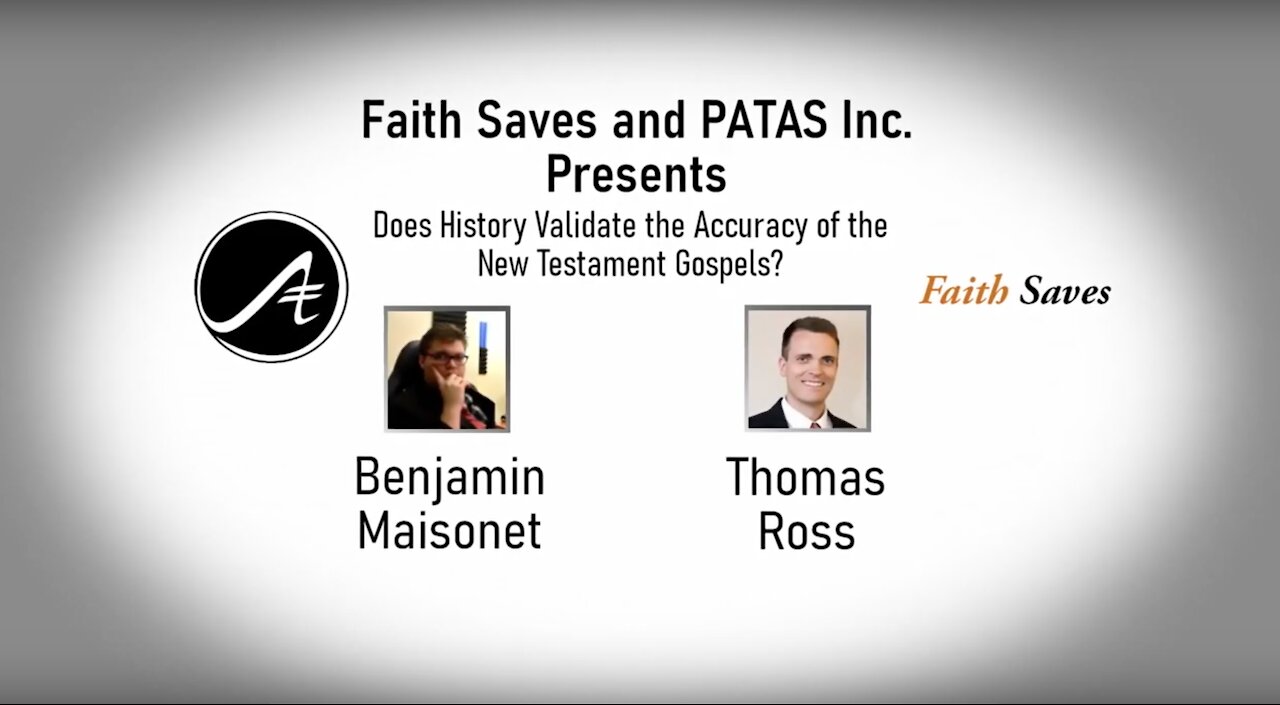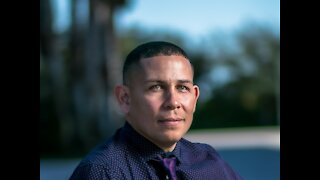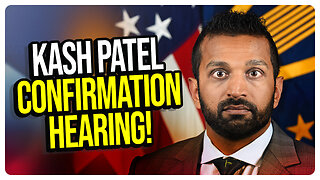Premium Only Content

PATAS Atheism Debate: Does History Validate the New Testament Gospels? Thomas Ross/Benjamin Maisonet
“History validates the accuracy of the New Testament Gospels” was the debate topic between Professor Thomas Ross, of the Mukwonago Baptist Bible Institute, and Benjamin Maisonet, president of PATAS, the Philippines ATheism, Agnosticism, and Secularism (Society). The debate topic, more specifically, was: “The extant facts of history demonstrate that the New Testament accurately presents the original picture of Jesus as evidenced by the historical Jesus’ self-understanding and proclamation and as understood and proclaimed by his original disciples.”
Ross was in the affirmative, Maisonet in the negative on the proposition. The debate took place on November 18, 2019, at the Mount Zion Baptist Mission in Manila, Philippines, pastored by Bill Hardecker, the debate moderator.
In his positive argument, Dr. Ross argued in a manner analogous to his argument in his 2018 debate with Shabir Ally on “The New Testament picture of Jesus: is it accurate?” that the extant facts of history support that the New Testament documents were written by eyewitnesses and the earliest followers of the Lord Jesus, and a proper historiography indicates that the New Testament witnesses are too early to have transformed Jesus Christ from a mere prophet or teacher into the crucified Son of God. After briefly providing evidence for Mark and Luke, he focused on the Gospels of Matthew and John. He pointed out that these Gospels were composed by two of Jesus Christ’s closest followers, the apostles, and the ancient testimony to their authorship of the Gospels bearing their names is unanimous, whether from Papias, Irenaus, the anti-Marcionite Prologue, Clement of Alexandria, Origen, Eusebius, Jerome, and all other ancient sources. Gospel headings are unanimous in favor of the traditional authorship of all four Gospels. Internal evidence also validates Matthew’s authorship of the first Gospel and is overwhelmingly in favor of Johannine authorship of the fourth Gospel.
Archaeology also strongly confirms the Gospels. Pre-gospel testimony to Christ’s resurrection, such as 1 Corinthians 15, and to Christ’s Deity, such as the Carmen Christi or Philippians 2:5-11, date to almost immediately after the events recorded. The written records documenting the history of Jesus Christ are superior to the literary evidence for even the most powerful political figure in His entire contemporary world, Julius Caesar. Matthew was written around AD 40, Mark AD 43, Luke AD 48, and John AD 50-65. Dr. Ross provided many lines of evidence for these early dates. Not only all the Christian sources but even all the anti-Christian Jewish and pagan sources said Jesus did miracles; absolutely no evidence exists for the atheist “Jesus” that never did any miracles appears. Finally historical testimony to the resurrection of Jesus Christ from the grave is extremely early and strong.
Mr. Maisonet argued that the accuracy of the New Testament does not prove God exists. Epistemology makes its accuracy irrelevant. Biblical prophecies are not specific, but are like a magic show. Setting aside the evidence from manuscript headings, Ben argued that we do not know who wrote the Gospels, and their authors were not eyewitnesses. The ending of Mark is not authentic, so the Bible has not been preserved. The original manuscripts of every Biblical book has perished. The Biblical canon is uncertain because of books like the Shepherd of Hermas and the Epistle of Barnabas. Ben said the names of the Gospels were added in 3rd or 4th century A. D. No amount of historical evidence can ever validate a miracle claim, because naturalism and secular humanism are true. Ben argued that Dr. Ross is inconsistent in believing in Biblical miracles but rejecting Muslim miracles. The resurrection of Christ was a legend, and space aliens taking Christ’s body and making it look like He rose from the grave was more probable than God doing a miracle. Setting aside possibilities such as God permitting free will decisions, Benjamin said that since God has not convinced him that He exists, He must either not care if Ben believes in Him or must not exist.
Among Dr. Ross’s responses were to point out that Ben had not provided even one piece of contrary historical evidence to the Christian position; that the ending of Mark appears in 99.9% of Greek manuscripts, so it is preserved; the Bible has far better manuscript evidence than any other ancient document; predictive prophecy in both the Old and New Testaments are very specific; evidence for canonical Scripture is vastly superior to anything apocryphal and pseudepigraphical works can offer; miracle claims in other religions have vastly inferior attestation to Biblical miracles; David Hume’s argument against miracles is unsound; and ascribing the resurrection of Christ to aliens and an unwillingness to believe in miracles no matter how much evidence there was evidenced that the main problem for the atheist is rebellion in his will, not intellectual objections.
-
 4:16
4:16
Terrence K Williams
3 years agoHEATED Debate on Biden's History As a Tough on Crime Senator!
2.01K25 -
 9:09
9:09
rebuildingthegates
4 years agoChristian's Debate on Old Testament Law
40 -
 5:00
5:00
FloNight
4 years agoThe History Of Thomas Jefferson & The Library Of Congress
36 -
 3:54
3:54
KennyLay
4 years agoBest Debate in history
82 -
 LIVE
LIVE
Dr Disrespect
3 hours ago🔴LIVE - DR DISRESPECT - WARZONE - CRAZY TRIPLE THREAT CHALLENGE
5,005 watching -
 1:45:07
1:45:07
The Quartering
2 hours agoWokeness Leads To PlaneCrash, Kash & Tulsi Confirmations, Daily Wire Blasted & More
32.9K5 -
 LIVE
LIVE
Right Side Broadcasting Network
21 hours agoLIVE: Kash Patel Testifies at Senate Confirmation Hearing for FBI Director - 1/30/25
39,861 watching -
 1:55:33
1:55:33
The Charlie Kirk Show
3 hours agoThe Biggest Confirmation Day Of All + DC Crash Aftermath | 1.30.2025
80.4K44 -
 LIVE
LIVE
vivafrei
6 hours agoKash Patel Confirmation Hearing LIVE with Moderate Viva Frei Commentary!
8,878 watching -
 1:11:35
1:11:35
Russell Brand
4 hours agoRFK Jr. Challenges the System While Starmer’s UK Falls Apart – SF529
133K63